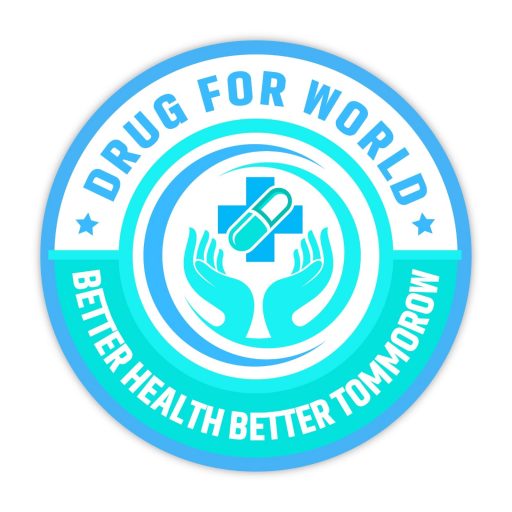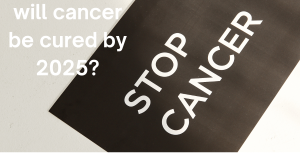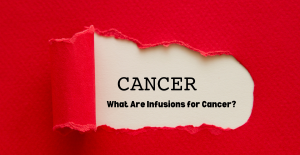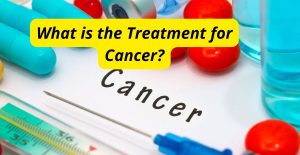Chemotherapy is a cornerstone in treating various cancers, offering many patients hope and a path forward. However, embarking on a chemotherapy journey often comes with questions and uncertainties. Among the most common concerns is, “How Do I Know If Chemo Is Working?” Given that chemotherapy provides comfort and lays the groundwork for future treatment changes, it is critical to understand its effectiveness. We will explore the key signs, tests, and factors that help determine whether chemotherapy achieves its intended goals.
What Is Chemotherapy?
Chemotherapy involves the use of drugs to destroy cancer cells, prevent them from growing, or slow their spread. It is a systemic treatment, meaning it travels throughout the body to target cancer cells wherever they may be. While effective, chemotherapy can have varied impacts on individuals, making it essential to monitor its success carefully.
Signs That Chemotherapy Might Be Working
Reduction in Tumor Size
One of the most tangible indicators that How Do I Know If Chemo Is Working? in tumor size. Doctors often use imaging tests like CT scans, MRIs, or X-rays to measure tumor size before and after treatment. A noticeable decrease suggests that the chemotherapy drugs effectively target the cancer cells.
Stabilization of Cancer
If cancer does not grow or spread further, it can indicate that chemotherapy is working. This is especially important in cases where complete eradication is not the immediate goal but rather control and management.
Improvement in Symptoms
Some cancers cause specific symptoms such as pain, fatigue, or difficulty breathing. How Do I Know If Chemo Is Working?, these symptoms often improve or become less severe.
Changes in Biomarkers
Biomarkers are measurable substances in the body, such as proteins or genes, that indicate the presence of cancer. A decrease in specific cancer-related biomarkers after chemotherapy can be a positive sign.
Medical Tests to Evaluate Chemotherapy Effectiveness
Imaging Tests
Imaging techniques, including CT scans, MRIs, and PET scans, are commonly used to monitor tumor size and spread changes. These tests provide a visual representation of how the cancer is responding to treatment.
Blood Tests
Blood tests can measure various markers, including cancer antigens and overall organ function, which may indicate how well the treatment is working.
Biopsy Results
A biopsy may occasionally be performed to evaluate the direct effects of chemotherapy on cancer cells. This entails using a microscope to examine a tiny sample of tissue.
Factors Influencing Chemotherapy Success
Cancer Type and Stage
The type and stage of cancer can affect the success of chemotherapy. Chemotherapy works better for some malignancies than others.
Individual Response
Every patient’s body is unique. Age, overall health, and genetic makeup can influence chemotherapy’s effectiveness.
Chemotherapy Regimen
Chemotherapy uses different drugs and combinations, and its success depends on selecting the correct regimen for the specific cancer type.
Understanding Challenges in Assessing Chemotherapy Success
Side Effects vs. Effectiveness
Experiencing side effects does not necessarily correlate with the success of chemotherapy. How Do I Know If Chemo Is Working?that the drugs are active, they are not a measure of effectiveness.
Delayed Results
Sometimes, chemotherapy’s results take time to manifest. Patience and ongoing monitoring are key to evaluating success.
Steps to Take During Chemotherapy
Maintain Open Communication
Discuss your treatment progress regularly with your oncologist. Ask questions and share any concerns about symptoms or side effects.
Follow Medical Advice
Adhere to the prescribed chemotherapy schedule, dietary recommendations, and any additional medications to maximize treatment effectiveness.
Monitor Your Health
Monitor any changes in your symptoms, vitality, and general health. This information can help your healthcare team assess treatment progress.
Emotional and Psychological Impact
Coping with Uncertainty
It can be emotionally taxing to wait for test results and track improvement. Consult with loved ones, support groups, or counselors for assistance.
Maintaining Hope
Even when results take time, focusing on small victories, such as symptom improvement, can help maintain a positive outlook.
What to Do If Chemotherapy Isn’t Working
Consult Your Oncologist
If there is evidence that chemotherapy is not achieving its goals, your oncologist may recommend changes to the treatment plan, such as trying different drugs or combining therapies.
Explore Other Treatment Options
If chemotherapy is not effective, other treatments, such as immunotherapy, radiation, or surgery, may be considered.
Seek a Second Opinion
Getting a second opinion from another oncology specialist can provide additional insights and potential alternatives.
Supporting Loved Ones Through Chemotherapy
Providing Emotional Support
Be a listening ear and offer encouragement to loved ones undergoing chemotherapy. Emotional support can have a big impact on their path.
Assisting with Daily Tasks
Help with daily activities, such as cooking, cleaning, or transportation to medical appointments, to alleviate the patient’s stress.
Encouraging Self-Care
Promote healthy habits like balanced nutrition, hydration, and light physical activity to support including CT scans, MRIs, and PET scans overall well-being.
Extended Content for a Comprehensive Guide:
FAQs About Chemotherapy Effectiveness
How Long Does It Take to See Results?
The time frame for seeing results varies based on the type and stage of cancer and the specific chemotherapy regimen. Some patients may notice changes within weeks, while others may need several months of treatment before significant results are observed.
Can Chemotherapy Be Combined with Other Treatments?
Yes, chemotherapy is often combined with other treatments, such as surgery, radiation therapy, or immunotherapy, to enhance its effectiveness. Multimodal therapy is the name given to this strategy.
What If My Cancer Returns After Chemotherapy?
If cancer recurs, your oncologist will evaluate alternative treatment options, which may include different chemotherapy drugs, targeted therapy, or clinical trials.
Real-Life Experiences
Sharing stories of individuals who have undergone chemotherapy can provide insight and hope. Hearing about their challenges, successes, and coping strategies can be incredibly valuable for current patients.
Advances in Chemotherapy Research
Highlighting recent breakthroughs in chemotherapy and cancer treatment provides readers with hope and a broader understanding of ongoing progress in the medical field.
Self-Care During Chemotherapy
Nutrition and Diet
Eating a balanced diet rich in nutrients can help support the body’s ability to handle chemotherapy side effects.
Physical Activity
Light exercises, such as walking or yoga, can improve mood, energy levels, and overall health during treatment.
Stress Management
Practices like meditation, deep breathing, or engaging in hobbies can help reduce stress and improve emotional well-being.
Conclusion:
Determining whether chemotherapy works requires a combination of medical tests, symptom evaluation, and ongoing communication with your healthcare team. By staying informed and proactive, patients can better navigate their treatment journey and make decisions that align with their goals and health needs. Always consult your oncologist for personalized guidance and support throughout your chemotherapy experience.




